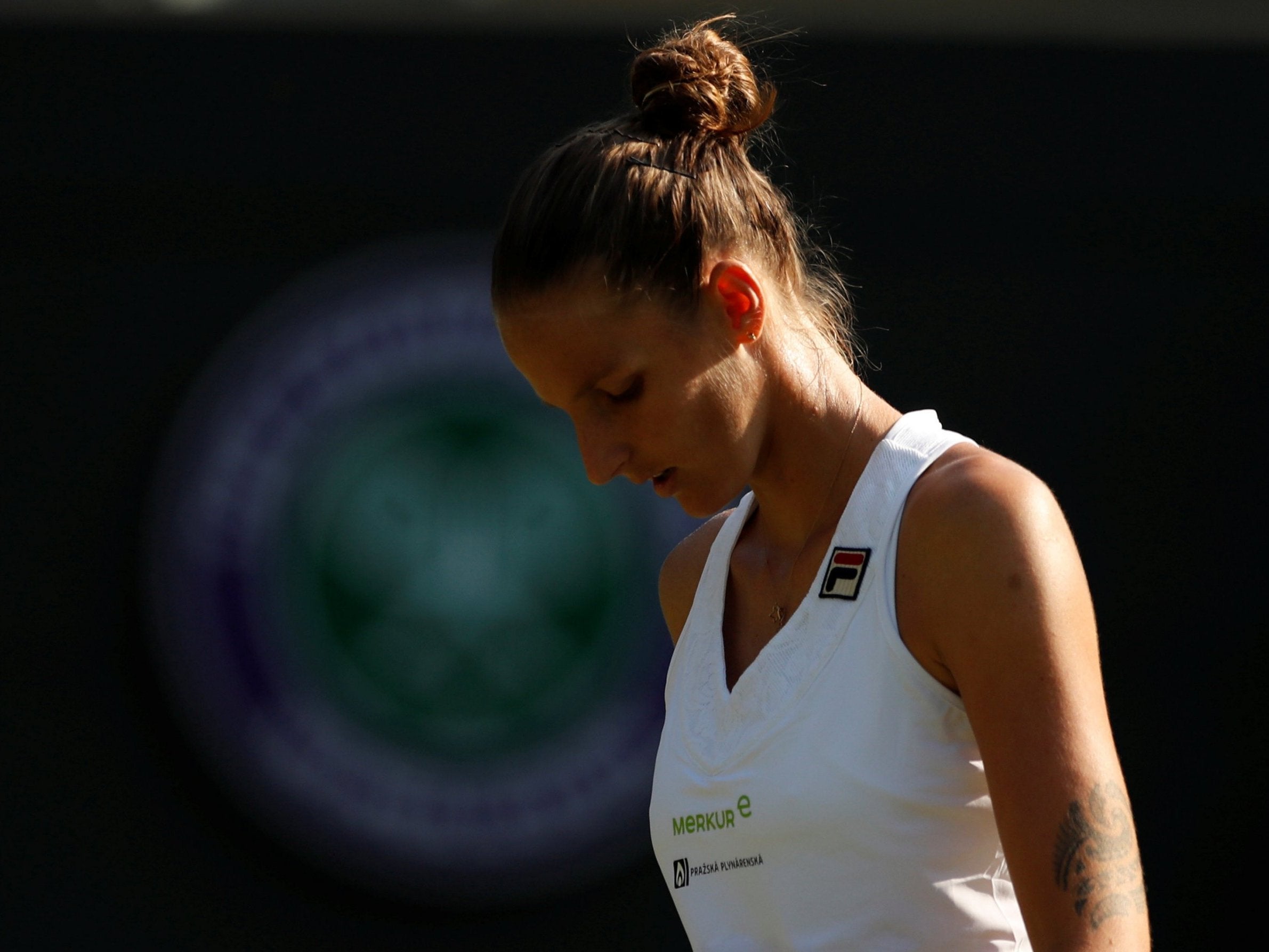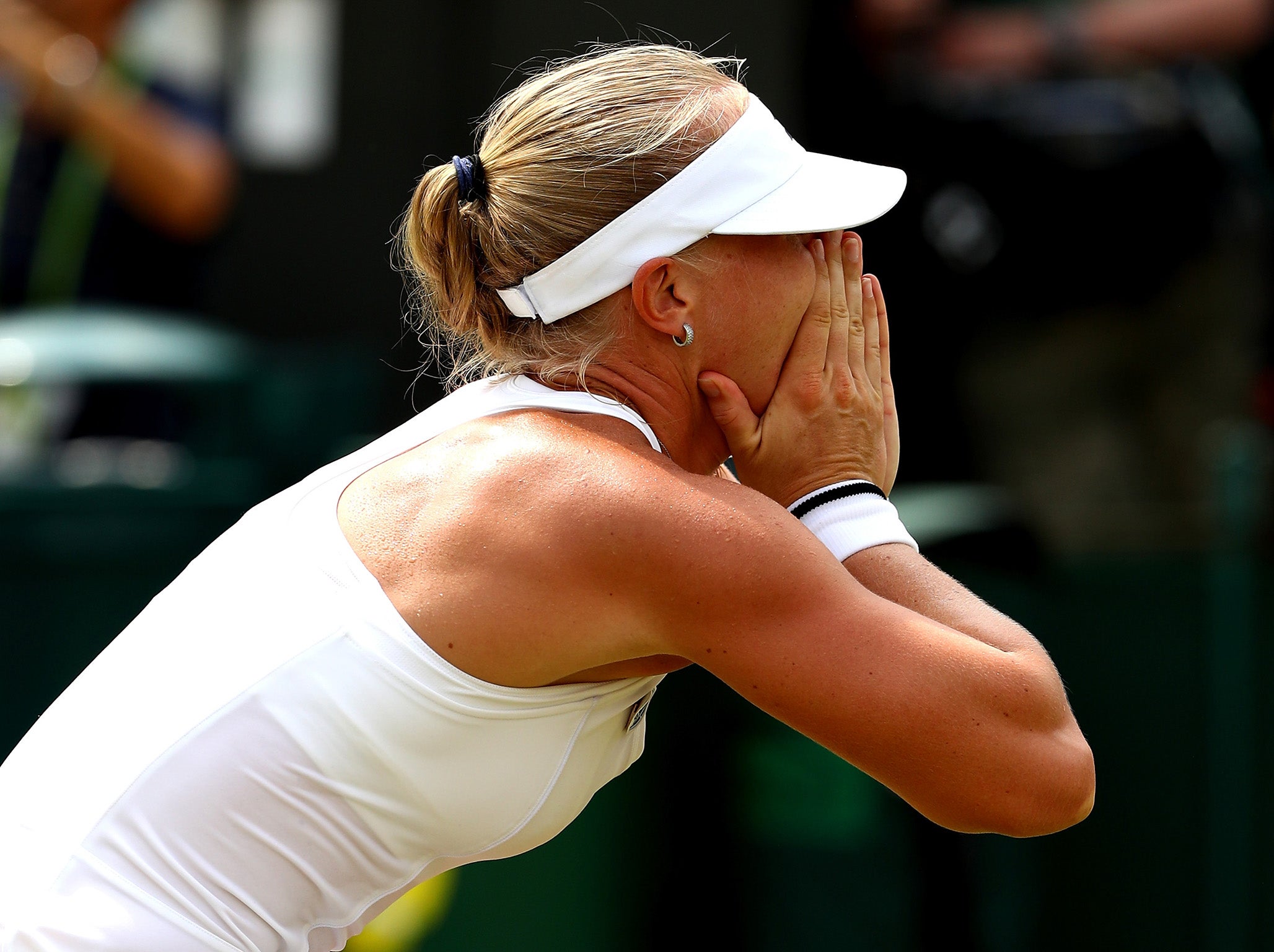How Karolina Pliskova’s Wimbledon struggles highlight the growing state of flux in women’s tennis
On Monday Pliskova slipped to a straight sets defeat by Kiki Bertens of the Netherlands, to become the last of Wimbledon’s top ten women to fall

It is a glaring anomaly that has long puzzled even those with a passing interest in the WTA Tour: why does Karolína Plíšková never seem to win at Wimbledon?
Her straight sets defeat by Kiki Bertens in the fourth round on Monday brought to an end both her best and yet most disappointing performance at The Championships to date. Best because in reaching the second week for the very first time, she ended a miserable run of five consecutive second round exits. Most disappointing because — until one final, emphatic winner from Bertens — Plíšková had been the sole top ten seed still remaining in the draw.
This, then, was her chance. And naturally this exit hurt more than most.
“This was a match which I maybe should have won,” she said in a terse post-match press conference, having just brusquely declined to answer one question on what she made of all the top ten seeds falling early. “For sure this was not my best match. I had so many chances and really didn’t serve very well, there are just so many negative things about this match.”
It’s difficult to pinpoint exactly where Plíšková has been going wrong at this fastidious little corner of south-west London. It’s not the surface. Her Wimbledon woes mask a solid grass court record — twice winner of the WTA Premier classified Eastbourne International, as well as wins in Nottingham and Birmingham — while her big-serving, power-hitting game is tailor made for the surface, where the ball skids low and is already a handful to return.
Nor is her talent in question. Plíšková, still just 26, beat Serena Williams en route to the US Open final in 2016 and has reached the last four at Roland-Garros, and the last eight in Melbourne, twice. Last year she reached World No. 1 for the first time. “She’s a great player and really came out swinging,” Harriet Dart enthused after their first round match last week. “She has a big serve with such a heavy, flat game,” Victoria Azarenka begrudgingly admired after their second round match, a couple of days later.
Could Plíšková’s repeated disappointments here simply be written off merely as bad luck? After all, in previous years she has come up against the likes of Sabine Lisicki and Coco Vandeweghe — two proven grass-court performers — early into the tournament, while Bertens is in the form of her life having vanquished five-time champion Venus Williams in the previous round. This is the first time Bertens has been beyond the third round of Wimbledon, and just her second time in the last eight of a Grand Slam.
“I already knew that she could play well,” Plíšková later admitted. “She had already played a couple of tough matches — she beat Venus — and clearly she just went for it.”
But while individual results can possibly be attributed to bad luck, consistent trends cannot. Instead, Plíšková is the latest title contender to fall afoul of the growing state of flux in the women’s game: almost half of the women who reached the second week of Wimbledon this year — 15 of 32 — were unseeded. Plíšková’s exit meanwhile means this is the first time in the Open Era that zero of the top-ten seeds failed to reach the quarter-finals.

Simply put: ‘easy’ matches on the WTA Tour are now few and far between. Instead, dangerous contenders lurk around every corner, and players such as former top-ten ranked Belinda Bencic, Dominika Cibulkova and Ekaterina Makarova are familiar to all tennis fans despite their unseeded status at this year’s Championships. This year more than ever, there is something approaching parity in the draw, regardless of seeding.
This was the point Plíšková was most keen to make after her 6-3, 7-6 (1) defeat. “Look, there are still good players [left], so I do not know if it is disappointing or not,” she stressed. “They are not seeded — Bertens was seeded. So it is not that there is a free pass to the final. You still have to beat the players and there is Kerber, and Williams. I do not think the draw is open, for sure.”
If there is a glimmer of light for Plíšková it is that she has shown she can grind out results here even when not playing particularly well, winning as many matches at Wimbledon last week as she had managed in the past three years. Her attention will now turn to the American hardcourt season, with the US Open the Slam she has so far performed best at.
“I think all the matches what I won here were not really easy and I was not really playing the best tennis, which is good that I can still win matches with this tennis,” she added. “I think my game improved little bit, especially after what I didn't feel that well in Paris. I think overall everything is fine.”

Bertens will next play Julia Görges for a place in the semi-finals. Seeded 13th, the German had never before made it beyond the fourth round of a Grand Slam and had lost in the opening round at Wimbledon for the past five years.
Join our commenting forum
Join thought-provoking conversations, follow other Independent readers and see their replies
Comments